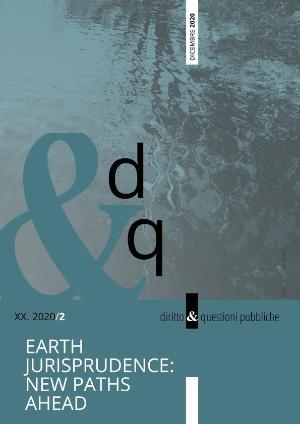SCELG Marie Curie fellow Dr. Sajeva edits open access special issue on Earth Jurisprudence and nature’s rights
Jan 2021 — Dr. Sajeva edited a monographic section of the open access journal Law and Public Matters (Diritto & questioni pubbliche) with six articles on Earth Jurisprudence and the challenges of the recognition of rights to nature.

SCELG Marie Curie Fellow Giulia Sajeva has edited a monographic section of the Italian open access journal Law and Public Matters (Diritto & questioni pubbliche). The issue contains the articles of legal theory and private law authors that have analysed the theory of Earth Jurisprudence and looked at the evolution and challenges of the recognition of rights to nature.
The principles and ethical foundations of Earth Jurisprudence, first proposed by Thomas Berry and later developed by Cormac Cullinan and many other scholars, are based on the idea of interdependence of all living and non-living entities. From the realization of such interdependence, the recognition of rights to natural entities has appeared as a possible first step towards the realization of legal and governance systems more appropriate than present ones to preserve human and non-human life on Earth. The UN General Assembly, through its process of yearly consultation Harmony with Nature Dialogues, has helped to define and leverage the ideas, principles and demand for change that Earth Jurisprudence conveys.
The special issue hosts contributions by:
- Giulia Sajeva, Do we Need Earth Jurisprudence? Looking for Change in New Old Friends.
- Sofia Ciuffoletti, Have trees got standing? A brief account of locus standi doctrines and case law in the environmental litigation on the basis of the principle of effectiveness of rights.
- Matija Žgur, All the Earth’s legal children. Some sceptical comments about Nature’s legal personhood.
- Giada Giacomini (former SCELG visiting researcher), The Interactive Dialogues of UN Harmony with Nature: for a paradigmatic shift to Earth-centred governance.
- Rodrigo Míguez Núñez, Soggettività giuridica e natura. Spunti per una riflessione civilistica.
- Livio Perra, L’antropomorfizzazione giuridica.
Earth Jurisprudence proposes a return to natural law theories grounded on the recognition of human rights as well the rights of non-human natural entities. Whether or not walking back to natural law theories is the right path ahead to justify the recognition of rights to non-human entities, this process indeed has so far concretized in international and national court decisions, laws and even constitutions, many of which are analysed in the monographic section.